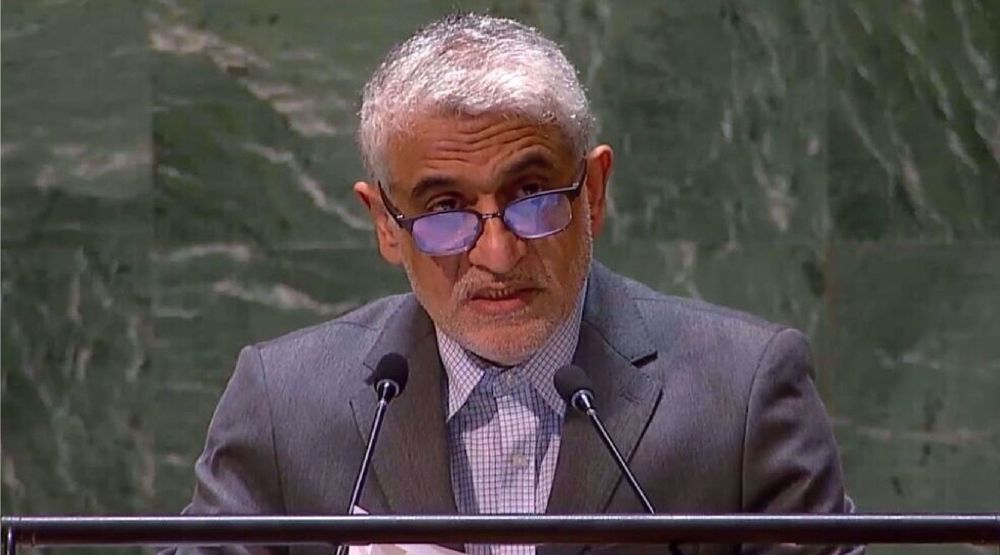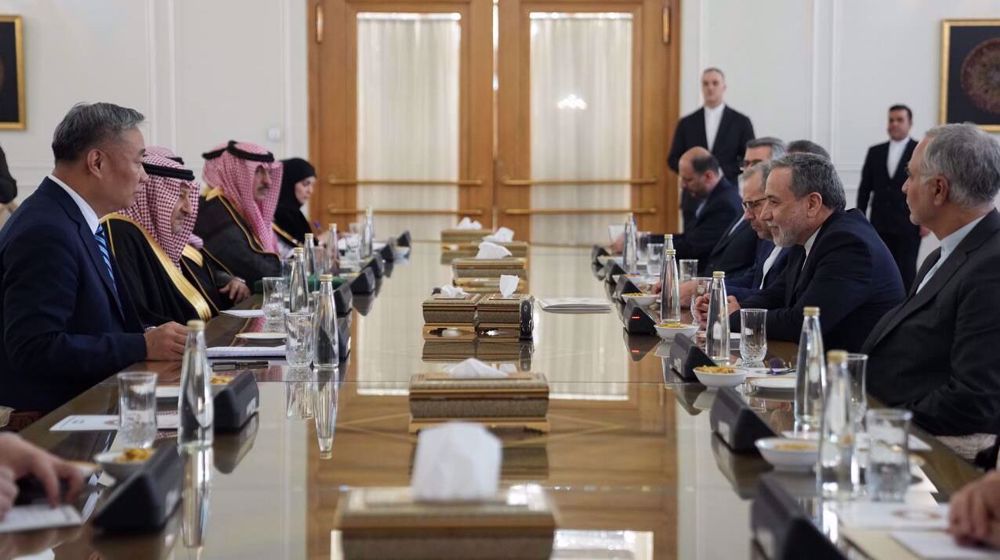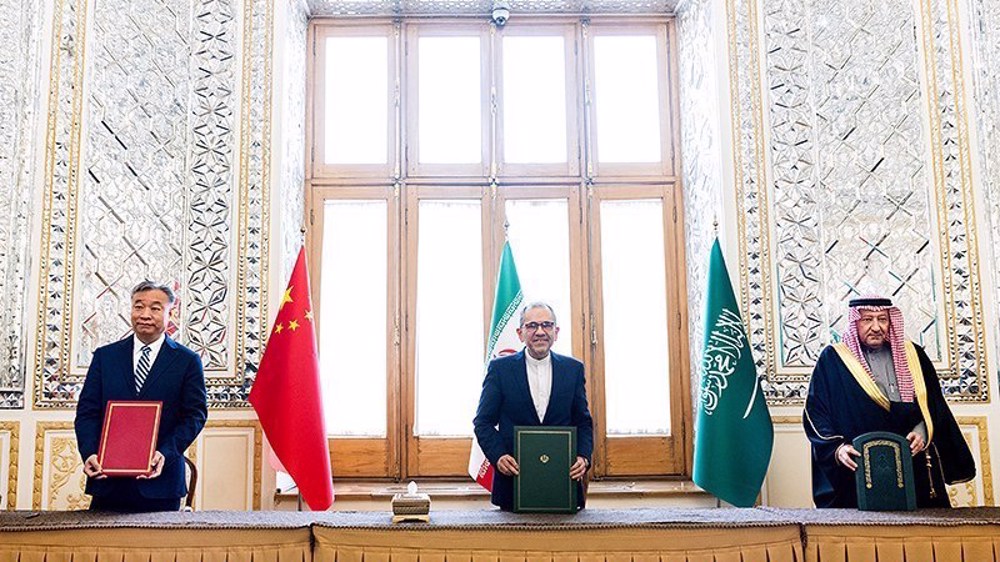Britain to join US-led naval mission in Persian Gulf
Britain says it will join a US-led naval mission purportedly aimed at protecting shipping lanes in the Strait of Hormuz and the Persian Gulf, where Washington falsely accuses Iran of having been behind a series of attacks on oil tankers.
The British Ministry of Defense said Monday that two of the country’s Royal Navy vessels will work alongside the US Navy to escort vessels through the Strait of Hormuz.
The UK’s new Foreign Secretary Dominic Raab said London had to respond to the “increased threat” now, shifting away from plans of European-led mission proposed by his predecessor, Jeremy Hunt.
“Our aim is to build the broadest international support to uphold freedom of navigation in the region, as protected under international law,” Raab claimed.
The United States has been trying to persuade its allies into an international coalition with the declared aim of providing “security” for merchant shipping in the Strait of Hormuz — which accommodates around a third of global seaborne oil traffic —and other strategic Middle Eastern shipping lanes.
Washington claims Tehran has played a role in two separate attacks on oil tankers in the Gulf of Oman in May and June, without providing any credible evidence to support the accusations, which Iran has categorically rejected.
Last Tuesday, the US Embassy in Berlin said that the administration of President Donald Trump had called on the German government to join France and Britain in the mission to combat what it claimed to be “Iranian aggression.”
Washington’s call has, however, been met with little interest from Washington’s allies, which are concerned that joining such an alliance could drag them into a conflict with Iran.
The French are noncommittal, while Germany, Italy and Sweden have rejected joining the alliance.
German Foreign Minister Heiko Maas on Monday said Berlin favored a European mission but warned it was rather difficult to make progress on the initiative.
“At the moment the Britons would rather join an American mission. We won’t do that,” said Maas.
Britain has become the first country that responded positively to the US’s call.
In an attempt to allay German concerns, the British foreign minister said that the UK's “approach to Iran hasn’t changed.” Raab said that the new British government remained committed to de-escalation and to “maintain the nuclear deal.”
He was referring to the 2015 nuclear deal signed between Tehran and six major world powers, from which Washington withdrew in May 2018 and re-imposed sanctions on Iran that had been lifted under the pact.
However, the UK’s Labour critics asked whether the shift in policy demonstrated by the naval announcement meant that new Prime Minister Boris Johnson’s government was edging closer to the Trump administration’s Iran policy.
“The question is: will we thereby effectively be joining the US in their mission to stop all Iranian oil exports, a position which the US strongly adheres to, but the UK and EU oppose,” Lord Wood of Anfield, a Labor peer said.
Washington has lately adopted a quasi-warlike posture against Tehran, and intensified its provocative military moves in the Middle East, among them the June 20 incursion of advanced US-made RQ-4 Global Hawk into Iranian airspace over territorial waters off the coastal province of Hormozgan.
The UK has also joined the US in fueling tensions with Iran by seizing an Iranian-owned supertanker in the Strait of Gibraltar on July 4, under the pretext that the vessel had been suspected of carrying crude to Syria in violation of EU sanctions against the Arab country.
Reports, however, said the seizure took place at the request of the US.
Foreign Minister Mohammad Javad Zarif of Iran said Monday that the United States is unable to build the naval coalition because its allies are too “ashamed” to join it.
“Today the United States in alone in the world and cannot create a coalition. Countries that are its friends are too ashamed of being in a coalition with them,” Zarif told a news conference in Tehran. “They brought this situation upon themselves, with lawbreaking, by creating tensions and crises.”
Iran’s unstoppable ascent to global medical-tech dominance amid sanctions
US military deployment near Venezuela ‘dangerous precedent’: Pezeshkian
Pezeshkian heads to Central Asia for Kazakhstan, Turkmenistan visit
VIDEO | Press TV's news headlines
Iran protests to FIFA over provocative armband plan at soccer match in US
Discover Iran: A timeless journey through the enchanting alleys of Astarabad, Gorgan’s old city
VIDEO | Cambodians flee border towns as Thai-Cambodia clash enters third day
Leaked emails reveal Epstein’s central role in pro-Israel causes in US











 This makes it easy to access the Press TV website
This makes it easy to access the Press TV website